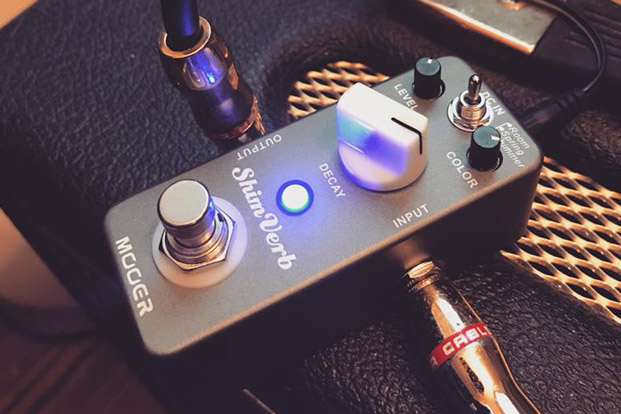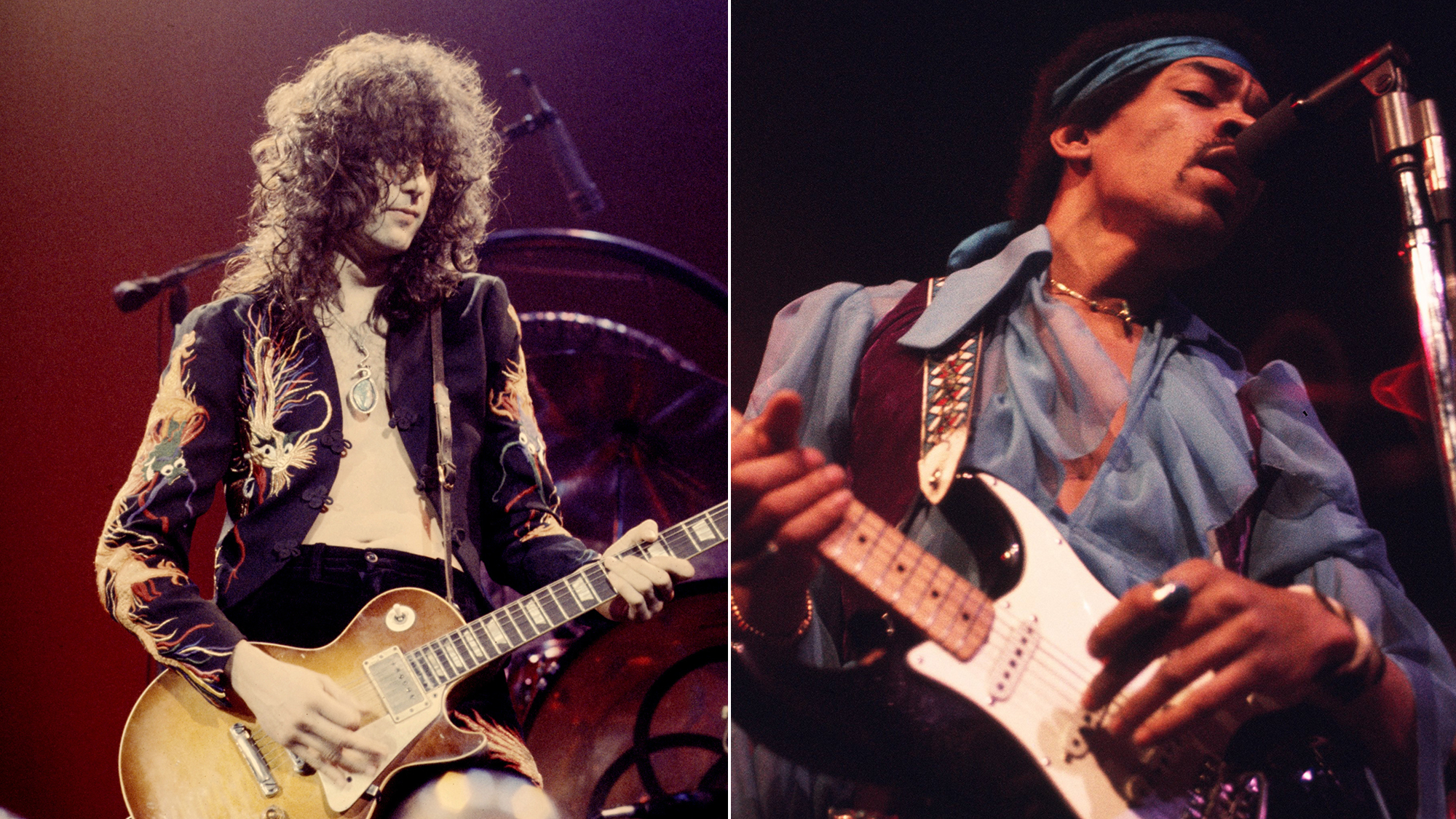Gear Review: Mooer Audio ShimVerb Reverb Pedal

As an editor at a guitar magazine, there are many ways I could go about obtaining a new reverb pedal. Although those ways might not always involve money (but they usually do), they often involve paperwork, emails, forms, official-sounding business-to-business language and a whole lot of waiting around.
Well, I hate paperwork, I hate emails, I hate forms and, most of all, I hate official-sounding business-to-business language. I also really hate waiting around.
Ergo, when I need a pedal (or anything musical, for that matter), I often (but not always) just head to eBay to see what's floating around. This led me to the Mooer AudioShimVerb, a wee gem of a pedal that I picked up for less than $64, including shipping.
I know there are many great reverb pedals out there—I mean serious reverb/ambient beasts, many of which have been reviewed by our very own Paul Riario. I even own a few of them myself (including an EHX Holy Grail and a gigantic Fender Vintage Reissue 1963 Reverb unit). But, hey, all I wanted was a tiny pedal to sit on top of my reverb-free Supro and/or Marshall tube amps for practicing, rehearsing and gigging (country band only). Plus, as you all know, it's fun to buy pedals.
The pedal—which is made in China—has three modes: Room, Spring and Shimmer. With some tweaking, Room will take you from traditional "room" to "hall" reverbs. Spring does its best to simulate a classic spring reverb unit, as used by surf bands like Slacktone, the Razorblades and Mister Neutron (Hey, that's my old band!). Shimmer adds some bizarre overtones and has a very spacey, post-rock feel.
I have no use for Shimmer, although I'm sure someone else does (If I were a better pedal steel guitarist, I could imagine using it for an ethereal Daniel Lanois effect), but I can see Room and (especially) Spring coming in handy. That said, both modes can sound a bit boxy at times, and Room had a touch of sterility.
And, just to prove that everyone is different, the gang at Premier Guitar loved the pedal's Shimmer mode: "[It's] the star of the show and can dish out startlingly rich, glammy, post-rock colors with fluttering, warm overtones. Cranking up the level will completely devour notes—creating a cosmic acid-wash that can become marvelously synth like if you couple the ShimVerb with volume swells."
Get The Pick Newsletter
All the latest guitar news, interviews, lessons, reviews, deals and more, direct to your inbox!
Hey, I play Bluesbreakers-style blues, Grady Martin-style rockabilly, vintage-inspired rock and classic-style country, so...whatever.
Getting to the point, is it inexpensive? Yes. Is it small? Yes. Is it good looking? Hell yes (I love the gunmetal grey, which is funny because I hate guns). Does it work as advertised? Yep. Are there 36.9 better reverb pedals out there? Probably. But again, this pedal was $64 and it gets the job done—especially when all you need is a sheen of reverb so it doesn't sound like you've been baked into a Cake song. It can—indeed—take the place of the reverb that's supposed to be in my amp (I prefer using lightweight tube amps these days, so my heavy, built-in-reverb models are sitting in my attic).
Check out some demo videos above and below, plus a little something I did with the ShimVerb and my B-bender Telecaster one recent boring Sunday afternoon.
Specifications
• Input: 1/4” monaural jack (impedance: 470k Ohms)
• Output: 1/4” monaural jack (impedance: 100 Ohms)
• Power Requirements: AC adapter 9V DC (center minus plug)
• Current Draw: 128 mA
• Dimensions: 93.5mm (D) × 42mm (W) × 52mm (H)
• Weight: 170g
• True bypass

Damian is Editor-in-Chief of Guitar World magazine. In past lives, he was GW’s managing editor and online managing editor. He's written liner notes for major-label releases, including Stevie Ray Vaughan's 'The Complete Epic Recordings Collection' (Sony Legacy) and has interviewed everyone from Yngwie Malmsteen to Kevin Bacon (with a few memorable Eric Clapton chats thrown into the mix). Damian, a former member of Brooklyn's The Gas House Gorillas, was the sole guitarist in Mister Neutron, a trio that toured the U.S. and released three albums. He now plays in two NYC-area bands.









![John Mayer and Bob Weir [left] of Dead & Company photographed against a grey background. Mayer wears a blue overshirt and has his signature Silver Sky on his shoulder. Weir wears grey and a bolo tie.](https://cdn.mos.cms.futurecdn.net/C6niSAybzVCHoYcpJ8ZZgE.jpg)

![A black-and-white action shot of Sergeant Thunderhoof perform live: [from left] Mark Sayer, Dan Flitcroft, Jim Camp and Josh Gallop](https://cdn.mos.cms.futurecdn.net/am3UhJbsxAE239XRRZ8zC8.jpg)
